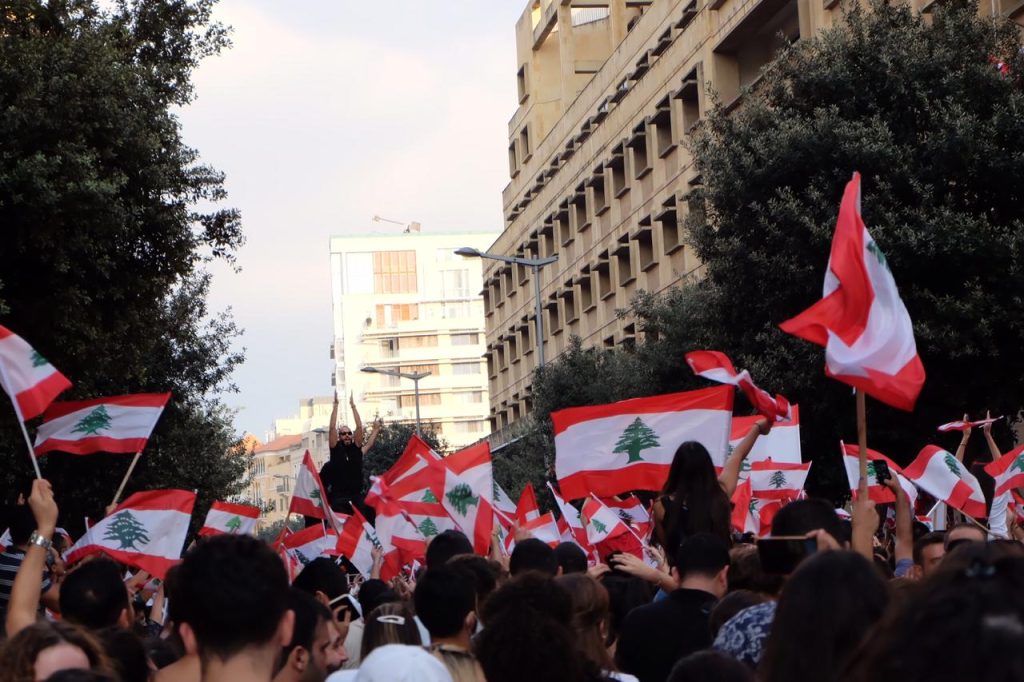Lebanon at a Turning Point? New Signals and Old Power Structures
Israel’s military strikes have weakened Hezbollah and created opportunities for newly elected Lebanese president Joseph Aoun to bring about political change in Lebanon. The first signals offer reasons to be hopeful, but they are not enough to lead to fundamental structural improvements.
2025 got off to a promising start for Lebanon. The Lebanese parliament elected Joseph Aoun as the country’s new president on 9 January, and a week later it confirmed his pick for prime minister, Nawaf Salam. Joseph Aoun – who is not related to his predecessor Michel Aoun – is held in high esteem by the people, as he is the former commander-in-chief of the Lebanese armed forces, perhaps the only state institution that enjoys favour across party lines.
Power Vacuum in the Shadow of a Multi-Crisis
No one had held the office of the president for the 26 months before that, after Michel Aoun’s presidency ended – even though Joseph Aoun was sold as his successor as early as 2022.
But being in political limbo of that kind is nothing new for the Lebanese. In 2007 they went seven months without a president, and from 2014 to 2016 it took 29 months to appoint a new person to the office. The BTI Transformation Index for 2024 describes this as being a consequence of Lebanon’s consensus-based political system. This feature cripples political affairs during a crisis, because actors use their power to block a presidential election, forcing concessions on other matters behind the scenes.
Lebanon has been sliding deeper and deeper into a sort of multi-crisis in recent years. It started with the collapse of the Lebanese banking sector in 2019 and the dramatic financial crisis that followed, then there was Covid-19, the catastrophic explosion in the Beirut harbour in 2020, and an exodus of educated workers. It sank to a sad low in 2024 when Israel’s war against Hezbollah caused widespread destruction in Southern Lebanon and drove hundreds of thousands of people to flee to other parts of the country and neighbouring Syria.
Hezbollah’s Weakness Creates Political Opportunities
So why have people become so optimistic now? The BTI names two different areas that have brought together Lebanon’s political elite despite their fundamental differences. One is the goal of “collective survival”. The other is the realisation that their world has changed irreversibly. While trying to form a government in 2019, their primary interest was in protecting their privileges, but now changes in regional power relations are more likely to influence Lebanon’s domestic policy.
This most affects Hezbollah. Supported by Iran and Syria, it managed to build its power in Lebanon to such an extent that it was often accurately described as a state within a state. Now that almost all of Hezbollah’s leaders have been targeted and killed, including its secretary general Hassan Nasrallah in late September 2024, it is much weaker. Even though most Lebanese have condemned the type of warfare that led to this result and killed thousands of civilians as well, many Lebanese have seemed relieved during bilateral talks that Hezbollah’s power has been broken. And even though the UN’s Special Tribunal did not find Hezbollah guilty of the murder of former Lebanese prime minister Rafiq al-Hariri per se, many people consider the group to be guilty not only of that assassination but also of a series of other political murders, the most recent of which silenced its harshest critic, Shiite intellectual Lokman Slim, in 2021.
Hezbollah’s chances of a political comeback declined further after 8 December 2024, the day the Assad regime collapsed suddenly in Syria. As an ally of Iran and Hezbollah, the regime had guaranteed weapons deliveries across its territory and beyond.
Hezbollah’s loss of power and pressure from regional actors – such as Qatar, Saudi Arabia and Egypt – and international actors – especially France and the United States – prepared the way for Joseph Aoun’s election in January 2025.
Personnel Decisions Mix Progression and Stagnation
During his inauguration speech, Aoun declared war on organised crime and emphasised that he would push back on political interests meddling in the justice system. In this light, it is an encouraging sign that he named Nawaf Salam as his prime minister, as Salam was a judge at the International Court of Justice and, more recently, its president. Aoun’s cabinet, which was confirmed shortly after his inauguration, primarily consists of technocrats, and although they were proposed by political parties, they are in fact qualified for the offices they now hold. This is a stark contrast to earlier cabinets, in which the parties’ internal interests seemed more important than professional competence or suitability.
The action plan that the cabinet had to present before Salam’s inauguration focussed mainly on Lebanon’s stability and security in a regional context. While it mentions Lebanon’s right to self-defence, it emphasises that the Lebanese government should have exclusive jurisdiction over matters of war and peace. In the Lebanese context, this is understood to be a clear restriction on Hezbollah’s power. The plan also highlights the government’s intention to implement UN Security Council Resolution 1701, which prohibits combatants south of the Litani River, except for UN forces and the Lebanese army. The plan is vague regarding urgently needed economic and financial reforms, however.
The nomination of Karim Soueid, supported by the bank lobby, as governor of the Lebanese central bank on 27 March 2025 lowered expectations in this regard. Soueid was elected by a heterogeneous coalition but against the prime minister’s will, because he promises to maintain the status quo. Experts at Lebanese think tank The Policy Initiative interpret his election as a sign that there is no longer any hope of serious reforms. For example, Soueid’s plan allows critical government collateral, such as its gold reserves, to be used to rescue private banks, instead of holding them accountable and taking on urgently needed reforms in the banking sector. Media network Al Jazeera characterises Soueid as “emblematic of the malaise Lebanon is suffering” and cites sources who doubt that his proposed reforms will meet the International Monetary Fund’s requirements.
Clientelism and Occupation Impede a Genuine ‘Reset
So, while some of the most essential decisions taken in recent years have offered a glimmer of hope for Lebanon, the country’s problems cannot be blamed on one party. As a result, Hezbollah’s weakness changes many things, but not the corruption or the clientelism that characterise the country’s entire political elite. Far-reaching reforms are urgently needed, but they are unlikely in a self-replicating system where no one wants to be the first to risk cuts to their own sinecure. As Sami Atallah and Sami Zoughaib from The Policy Initiative write, Lebanon is facing a systemic crisis rather than a ministerial one.
Another challenge is that the Israeli army’s ongoing occupation bolsters the political strength of the very forces that it was intended to weaken – most notably, Hezbollah. The vow by President Aoun and his cabinet to implement UN Security Council Resolution 1701, which calls for Hezbollah to withdraw all forces north of the Litani, is likely to be harder not easier to implement with the Israeli military present and to meet with more resistance, especially among the people of Southern Lebanon. So, although the changes in the region’s power structures have opened up new opportunities for Lebanon in the short term, they are simultaneously impeding a genuine reset.
First published on zenith.


Thank you for the article. Hezbollah’s weakness created an opportunity for change, but corruption and clientelism still hinder any real reform.
thanks for info.